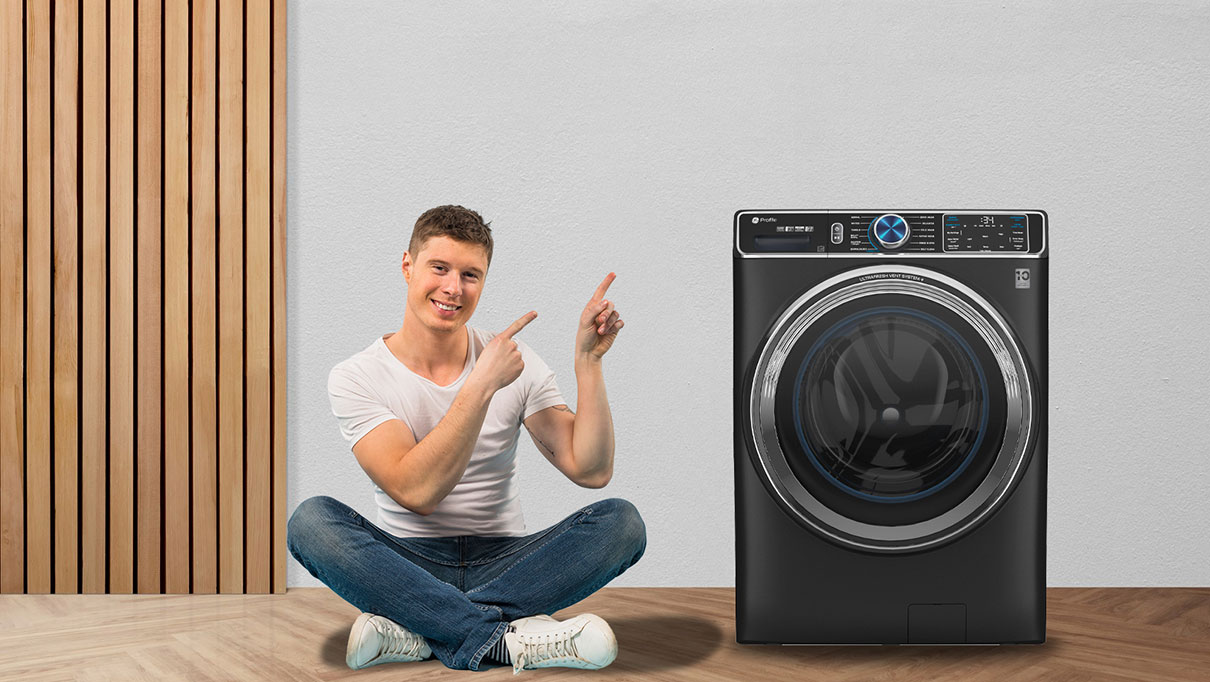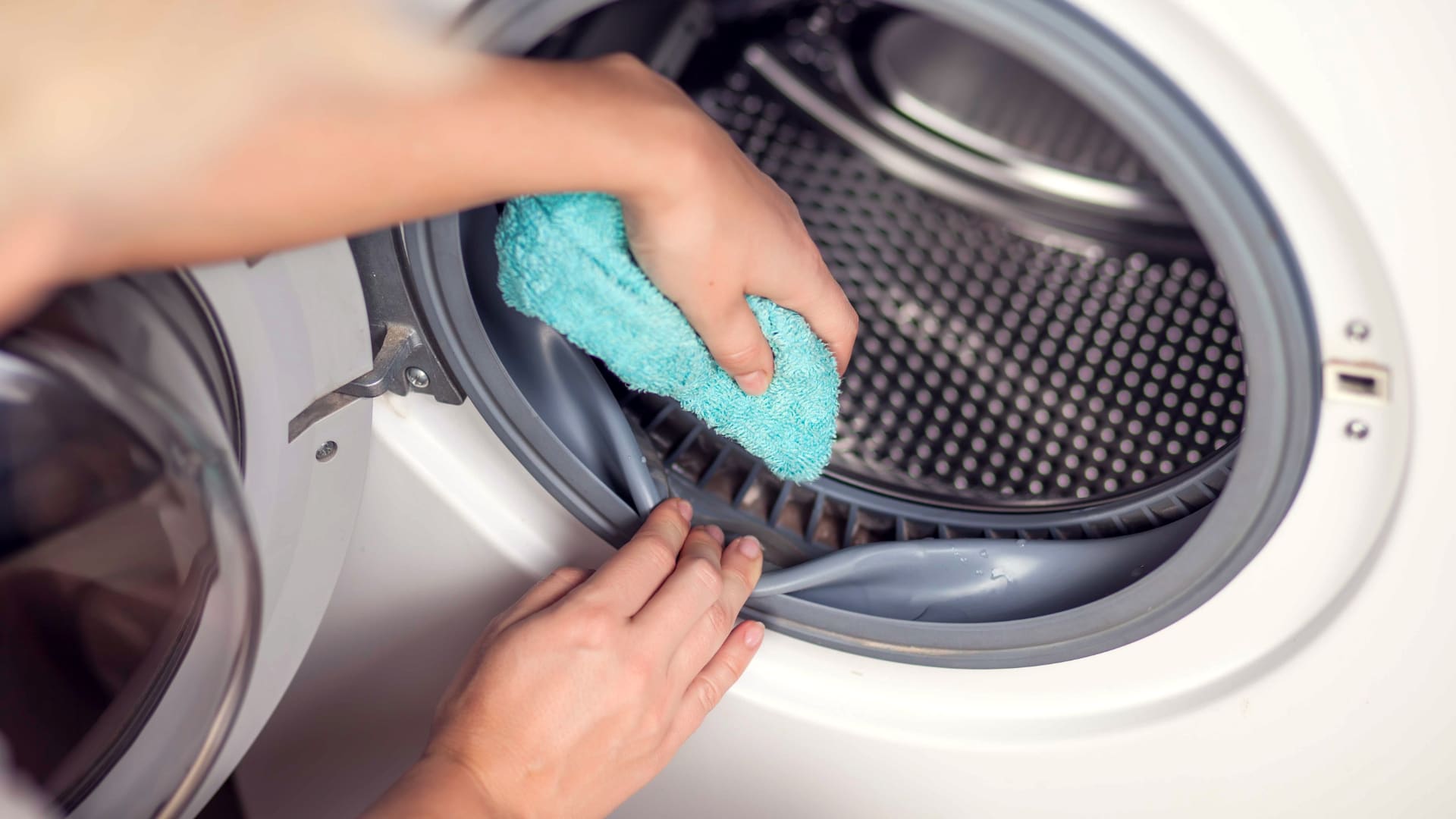Having trouble with your GE washer? You’re not alone.
Many GE washer owners face common issues. In this blog, we will guide you through some basic troubleshooting tips. From strange noises to water leaks, GE washers can present various problems. But, don’t worry. Most of these issues have simple fixes.
Understanding your washer’s common problems can save you time and money. We will provide easy-to-follow steps to solve these issues. Whether it’s a minor glitch or a more significant problem, our tips will help. Read on to keep your GE washer running smoothly. Let’s dive into the common problems and their solutions.

Credit: appliance-medic.com
Common Washer Issues
Common washer issues can cause frustration and inconvenience. Understanding these problems can help you troubleshoot and fix them. Let’s explore some common issues that you might encounter with your GE washer.
No Power
If your GE washer has no power, it won’t start at all. First, check if the washer is plugged in properly. Sometimes, a loose plug can cause this issue. Next, inspect the circuit breaker. A tripped breaker can cut power to the washer. Reset it if needed. Another possible cause is a blown fuse. Replace it to restore power. If these steps don’t work, the problem might be with the washer’s power cord or internal wiring.
Water Leaks
Water leaks can damage your home and lead to costly repairs. Start by examining the hoses. Check for any cracks or loose connections. Tighten or replace them if needed. Also, inspect the door seal. A damaged seal can cause water to escape. Clean it regularly and replace it if it’s worn out. Another possible cause is a clogged drain. Ensure the drain is clear of debris and functioning properly. If leaks persist, it might be a more serious issue with the washer’s internal components.

Credit: fredsappliance.com
Power Problems
Facing power problems with your GE washer can be frustrating. Power issues can prevent your washer from operating. Let’s explore some common causes and solutions for these power problems. We will focus on blown fuses and faulty outlets.
Blown Fuse
A blown fuse can cut power to your GE washer. Check your home’s fuse box. If you find a blown fuse, replace it.
- Turn off the power to the fuse box.
- Remove the blown fuse.
- Insert a new fuse of the same rating.
After replacing the fuse, turn the power back on. Test your washer to see if it starts working. If the fuse blows again, there may be a larger electrical problem.
Faulty Outlet
A faulty outlet can also cause power issues. Check the outlet where your washer is plugged in. Here’s how:
- Unplug the washer from the outlet.
- Plug in another device, like a lamp.
- See if the lamp works.
If the lamp doesn’t work, the outlet may be the problem. You can try plugging the washer into a different outlet. If it works, the original outlet needs fixing.
If you are unsure about electrical work, consult an electrician. Safety first!
Water Supply Issues
Experiencing water supply issues with your GE washer can be frustrating. These issues can affect the washing cycle and leave your clothes unclean. Let’s explore common problems such as blocked inlets and low water pressure. Understanding these can help you troubleshoot and fix them.
Blocked Inlet
A blocked inlet is a common issue. This can prevent water from entering your washer. Here’s how you can check and fix it:
- Turn off the water supply.
- Disconnect the hoses from the washer.
- Inspect the inlet screens for debris.
- Clean the screens with a brush.
- Reconnect the hoses and turn on the water.
If the problem persists, the inlet valve might be faulty. Consider replacing it to ensure smooth water flow.
Low Water Pressure
Low water pressure can affect the washer’s performance. This might be due to several reasons:
- Clogged pipes
- Faulty water supply
- Municipal water supply issues
To address this:
- Check other faucets in your home for water pressure.
- If only the washer is affected, inspect the water hoses.
- Ensure there are no kinks or bends in the hoses.
- Contact your water supplier if the issue is widespread.
Maintaining proper water pressure is crucial for an efficient wash cycle. Regularly inspect your water supply system to avoid these issues.
Drainage Problems
Dealing with drainage problems in your GE washer can be frustrating. These issues often stop the washer from working properly. Understanding common causes can help you fix them faster.
Clogged Drain Hose
A clogged drain hose is a common issue. Over time, debris and lint build up inside the hose. This blockage can prevent water from draining. To check the hose, disconnect it from the washer. Look for any visible clogs. Use a long brush or a piece of wire to clear the blockage. Make sure the hose is not kinked or bent.
Faulty Pump
A faulty pump can also cause drainage problems. The pump moves water out of the washer. If it is broken or clogged, the water will not drain. Listen for a humming noise when the washer is draining. This noise can indicate a problem with the pump. Access the pump by removing the back panel of the washer. Check for any debris or damage. Replace the pump if necessary.
Noise Issues
GE washers are known for their reliability. Yet, noise issues can be a common concern. A noisy washer can be annoying. Understanding the cause can help fix it. Let’s explore two common noise issues.
Loose Drum
A loose drum can cause a lot of noise. The drum may become unbalanced. This can happen over time. Check for loose bolts. Tighten them if needed. Ensure the washer is on a level surface. An unbalanced washer can make the drum loose. Leveling the washer can reduce noise.
Foreign Objects
Foreign objects in the washer can cause noise. Small items can get trapped. Coins, buttons, and other objects can fall into the drum. Check pockets before washing. Remove any foreign objects. If you hear rattling, stop the washer. Inspect the drum and the pump. Remove any objects you find. This can reduce noise and prevent damage.
Spin Cycle Problems
Spin cycle problems in your GE washer can be frustrating. The washer may not spin properly, leaving your clothes soaked. Understanding the root cause can help you fix the issue. Let’s look at some common problems and their solutions.
Unbalanced Load
An unbalanced load can cause spin cycle problems. If clothes bunch up on one side, the washer may struggle to spin. Try redistributing the clothes evenly around the drum. This can help balance the load and ensure a smooth spin.
Heavy items like towels and blankets can also cause imbalance. Mix them with lighter items for better balance. If the problem persists, check if the washer is level on the ground. Adjust the legs if necessary to keep it stable.
Motor Issues
Motor issues can affect the spin cycle. A faulty motor may prevent the washer from spinning at all. Listen for unusual noises during the spin cycle. Grinding or whining sounds can indicate motor problems.
If you suspect motor issues, consult the user manual for troubleshooting steps. Sometimes, resetting the washer can help. Unplug it for a few minutes and then plug it back in. If the problem continues, you may need to call a technician for further diagnosis.
Detergent Dispenser Issues
GE washers are known for their reliability, but sometimes issues arise. One common problem is the detergent dispenser. This component can affect the wash quality if not functioning correctly. Understanding the potential issues can help you troubleshoot and fix them.
Clogged Dispenser
A clogged dispenser is a frequent issue. Residue from detergents can build up over time. This can block the dispenser and prevent detergent from dispensing properly. To fix this, remove the dispenser drawer. Clean it with warm water and a brush. Make sure to clean any residue thoroughly. This should help restore proper function.
Improper Detergent
Using the wrong detergent can also cause problems. Always use high-efficiency (HE) detergent for GE washers. Regular detergent can create too many suds. This can lead to improper rinsing and clogging. Check the detergent packaging for HE compatibility. Using the correct detergent ensures better wash performance.
Maintenance Tips
Maintaining your GE washer can help it run efficiently for years. Regular care can prevent unexpected breakdowns and costly repairs. This section covers essential maintenance tips for your GE washer, ensuring it stays in top condition.
Regular Cleaning
Regular cleaning is vital for the longevity of your GE washer. Follow these steps:
- Wipe the exterior with a damp cloth to remove dust and dirt.
- Clean the drum monthly using a washer cleaner or a mix of vinegar and baking soda.
- Check the detergent dispenser for residue buildup and clean it with warm water.
Make sure the washer door is left open after each use. This prevents mold and mildew growth.
Professional Servicing
Even with regular cleaning, professional servicing is essential. This ensures all components are working correctly.
Consider scheduling a service appointment once a year. Professionals can:
- Inspect the washer’s internal parts.
- Check and replace worn-out belts and hoses.
- Ensure the machine’s balance and alignment.
Professional maintenance helps in detecting potential issues early. This can save you from unexpected breakdowns.

Credit: www.youtube.com
Frequently Asked Questions
Why Is My Ge Washer Not Draining?
A clogged drain hose or a faulty pump might be the cause.
How Do I Reset My Ge Washer?
Unplug the washer for 1 minute, then plug it back in.
Why Is My Ge Washer Making Loud Noises?
Check for unbalanced loads or foreign objects in the drum.
What Does It Mean If My Washer Stops Mid-cycle?
It might be due to a power issue or a faulty lid switch.
How Can I Fix A Leaking Ge Washer?
Inspect hoses and connections for damage or loose fittings. Replace if necessary.
Conclusion
Troubleshooting your GE washer can save time and money. Start with simple checks. Ensure the power is on and the door is closed. Check for clogs in the hoses. Clean the filter and drain pump. Listen for unusual sounds. Follow the manual for error codes.
Seek professional help if issues persist. Regular maintenance keeps your washer running smoothly. Happy washing!





